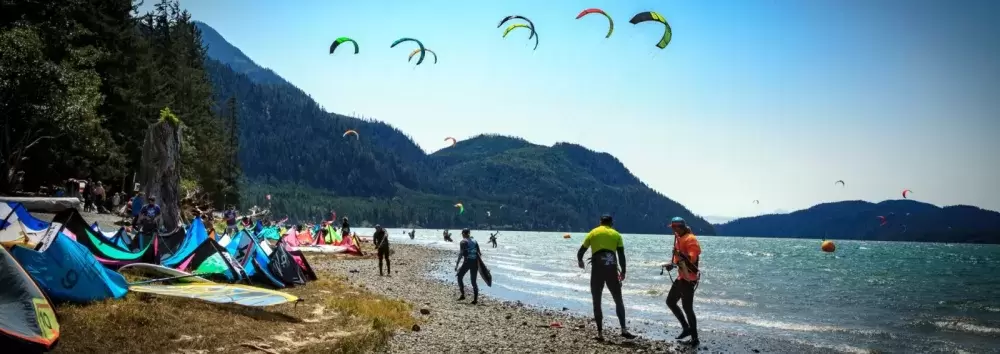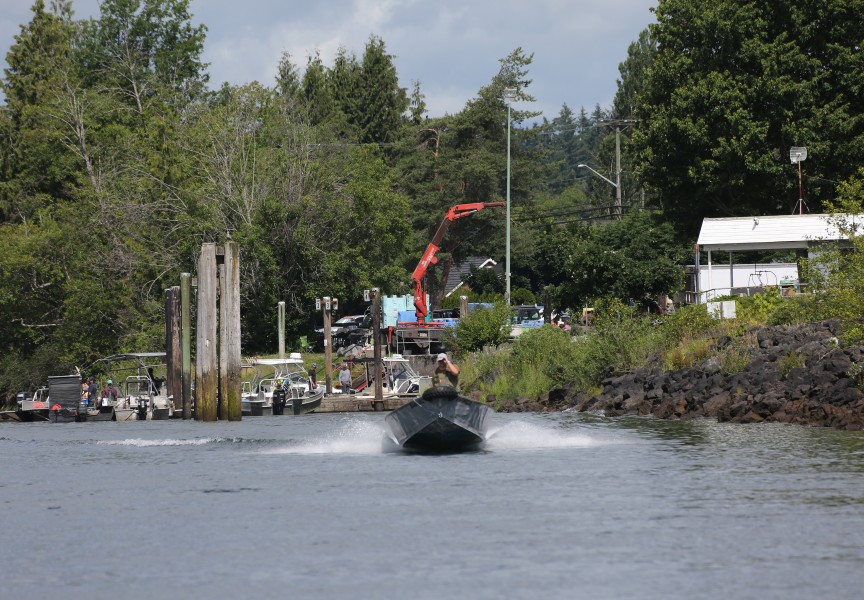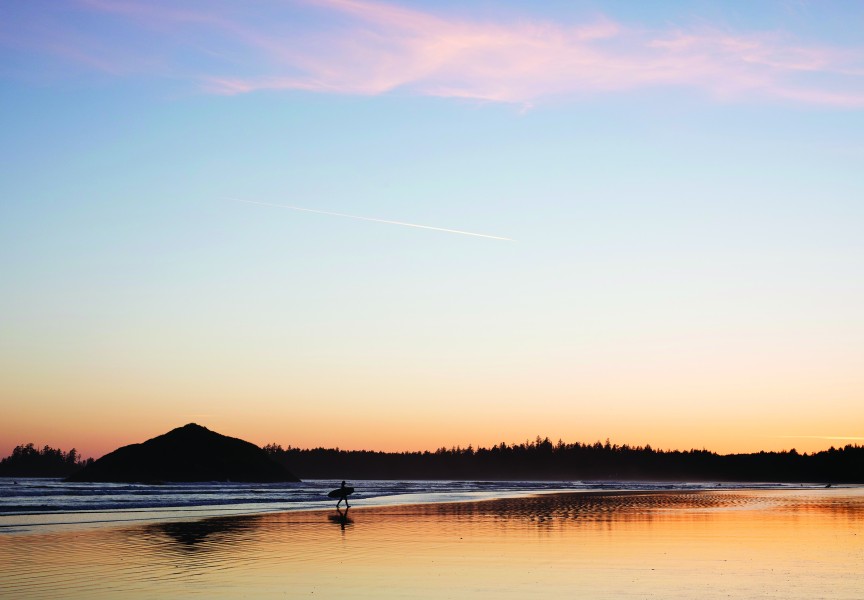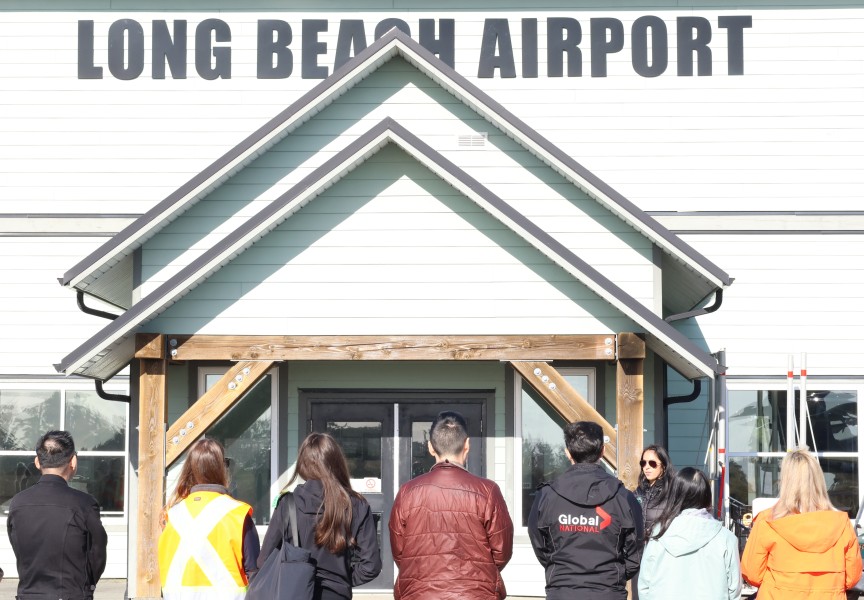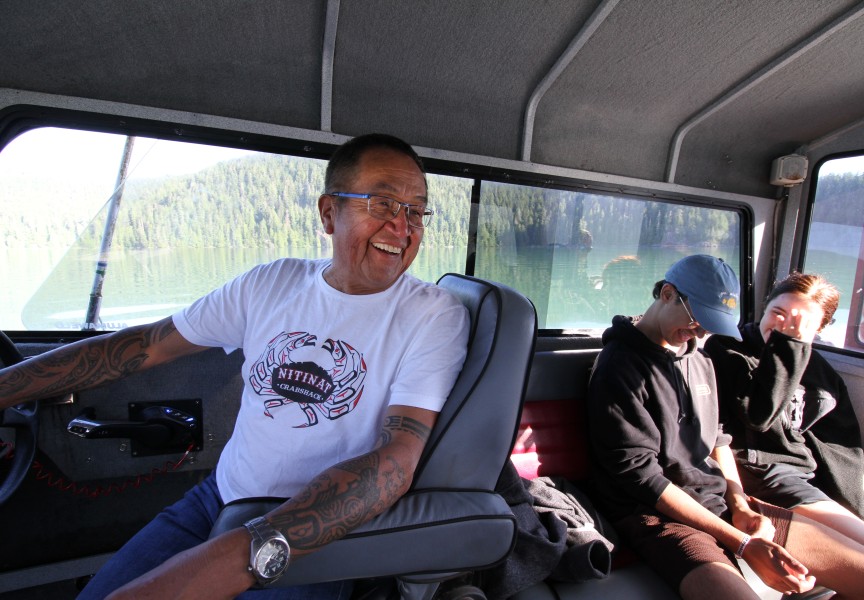Bryan Cofsky is doing his best to stay positive.
Cofsky is the executive director of the Ditidaht Economic Development Corporation, the economic arm of the Ditidaht First Nation.
He’s hoping for some encouraging news soon for those who operate Indigenous tourism businesses and wondering what their 2021 seasons will look like.
It’s no secret the COVID-19 pandemic devastated many of these businesses in 2020, including numerous Nuu-chah-nulth companies that were forced to close their doors for large portions of the year.
Some Nuu-chah-nulth tourism businesses, like Ditidaht’s campground and windsurfing park on Nitinaht Lake, did not even open their doors at all in 2000. These businesses are seasonal ones, traditionally opening in May and operating until October.
“That was right in the middle of the pandemic last year,” Cofsky said.
Pandemic closures meant members of the public were unable to see numerous upgrades that were completed at the campground and windsurfing park last spring.
“We’re ready to go,” Cofsky said. “We’re done our upgrades. We’re just in a holding pattern now.”
Provincial regulations must be lifted first, however, before Ditidaht officials would be able to welcome visitors to its campground and windsurfing park starting this spring.
Cofsky is encouraged by the fact COVID-19 vaccines have been developed and are now available in limited quantities in Canada.
In fact, some of these vaccines have already been distributed to some Nuu-chah-nulth residents living in remote communities along Vancouver Island’s west coast.
Cofsky is hoping the Ditidaht First Nation receives some vaccine doses in the near future as well.
“Hopefully that will take place before long,” he said.
And if British Columbia’s vaccine rollout is successful in the coming months, Cofsky is hoping it will be safe to open up Ditidaht’s tourism businesses in the spring.
“I’m pretty optimistic,” he said. “That gives us another few months between the vaccines and the community inoculations.”
Because the course of the pandemic is unpredictable, however, Cofsky also knows that the situation could become dire, especially if another wave - perhaps even more serious than the previous two - hits.
Cofsky said it would be disastrous for his First Nation if it had to endure another year without being able to offer up services from some of its tourism businesses.
“We don’t have a Plan B at this point,” he said. “We would have to rely on our other resources to keep us afloat.”
Cofsky added Ditidaht would have to count on its forestry and fisheries industries for some stable revenues if its tourism operators are unable to welcome visitors for a second straight year.
Jared Beaton is also hoping many better days are ahead in 2021. Beaton is the general manager of the Best Western Plus Tin Wis Resort in Tofino, which is owned by the Tla-o-qui-aht First Nation.
Since the resort is deemed an essential service, Beaton said it did stay open for the majority of 2020, except for a 10-week period starting last March when the Pacific Rim region was for the most part closed.
Even now the resort is remaining open to regional guests only.
Beaton said this in large part explains why the resort, which has 85 guest rooms, is only anticipating an occupancy rate around 20-25 per cent for the first three months of 2021.
That’s dramatically down from 2020 when the resort had about 60 per cent of its rooms filled during its off-season, the first three months of the year.
Like Ditidaht’s campground and windsurfing park, the Best Western Plus Tin Wis Resort also completed major renovations, about $6 million worth, last spring.
Beaton is hoping the resort will once again be a bustling place by later in the spring and definitely summer.
“I do see us being okay once the (provincial) restrictions are lifted,” he said.
Beaton said resort officials concentrated on attracting domestic visitors from British Columbia and Alberta this past year.
And though the facility was popular with international visitors in the past, Beaton said that will not be the case once again this year.
“I don’t foresee any international travelers this year (at the resort),” he said.
Until the pandemic is brought under control throughout the world, Beaton is not keen to see visitors from other countries coming to Tofino.
“I’m perfectly fine with that,” he said.
Beaton added he believes there will be sufficient interest from Canadians to stay at the resort this year.
“I anticipate an even busier summer,” he said. “There is going to be much more pent-up demand than last year.”
Meanwhile, Trevor Cootes, a councillor for the Huu-ay-aht who is also in charge of the economic development portfolio for the First Nation, is glad to see some community members have already been vaccinated.
About 70 members, and only those who live in the community of Ancala, have received the vaccine already.
“A very large percentage of our Huu-ay-aht First Nations citizens don’t have the vaccine yet,” Cootes said, adding the First Nation has about 900 members.
But Cootes is pleased a vaccine rollout has started.
“The vaccine is obviously very positive,” he said. “It’s the tool that will put the COVID virus in a place where we can safely open.”
Tourism businesses operated by Huu-ay-aht First Nations include a campground, which was closed throughout 2020, as well as the Hacas Inn, a motel which includes a pub in Bamfield, and a pair of fishing lodges.
“It was a bare bones operation with a skeletal crew,” Cootes said of the First Nation’s motel and fishing lodges which did have some guests, primarily contractors working nearby. “We weren’t promoting that we were open.”
Cootes said it is vital for his First Nations’ tourism businesses to open safely in 2021 so they can once again start bringing in some revenue.
“We need to be able to generate income,” he said. “If we have to go another season without our businesses, it will impact us being successful next year as well.”

